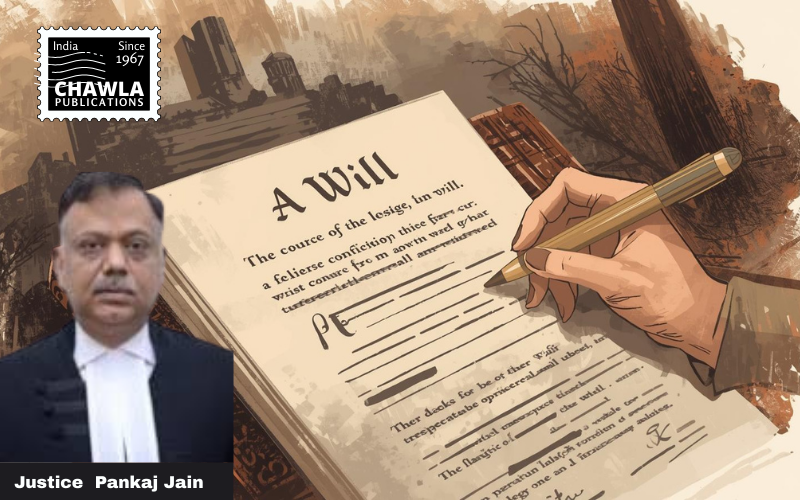Court rules that testators can act irrationally without affecting the validity of their wills unless contrary evidence is presented.
News Report:
In a significant ruling, the Punjab and Haryana High Court has upheld the validity of a contested will in the case of Sohan Singh (Since Deceased) v. Banti Kaur (Since Deceased), reinforcing the principle that a testator's seemingly irrational decisions do not inherently invalidate a will. The judgment, delivered on February 27, 2025, by Justice Pankaj Jain, addresses crucial aspects of testamentary disposition under the Indian Succession Act, 1925, Section 63.
The case involved a dispute over the estate left by Dalipa, who died in 1983, unmarried and without issue. Banti Kaur, claiming to be Dalipa's sole surviving legal heir, challenged the will executed by Dalipa in favor of Sohan Singh and others, alleging fraud and fabrication. The courts below had deemed the will suspicious due to the cancellation of an earlier will and unequal estate distribution. However, Justice Jain overturned these findings, emphasizing that the testator's right to act foolishly or unreasonably cannot be grounds for invalidating a will unless evidence suggests it contradicts the testator's true intentions.
Justice Jain meticulously analyzed the suspicious circumstances surrounding the will, ultimately concluding that neither the cancellation of a previous will nor the exclusion of certain heirs constituted valid grounds for suspicion. The court reiterated established legal principles, underscoring that a testator's autonomy in bequeathing property must be respected unless compelling evidence suggests coercion, fraud, or undue influence.
The judgment draws on precedents set by the Supreme Court in cases such as H. Venkatachala Iyengar v. B.N. Thimmajamma and others, highlighting that the onus lies on the propounder to dispel legitimate suspicions surrounding a will. Justice Jain's decision also navigates the legal intricacies of the Punjab Courts Act, 1918, which governs second appeals in the region, affirming that construction of documents germane to litigants' rights can raise questions of law warranting appellate intervention.
Legal experts view this ruling as a landmark affirmation of testamentary freedom, with implications for similar disputes across India. The judgment reinforces the principle that individuals have the right to distribute their estates as they see fit, even if their decisions appear irrational to others. This case underscores the judiciary's role in safeguarding testamentary autonomy while ensuring that wills reflect the genuine intentions of the deceased.
The decision has been welcomed by advocates of testamentary independence, emphasizing the importance of respecting individuals' rights to dispose of their property without judicial interference unless substantial evidence indicates malfeasance. As the legal community digests the implications of this ruling, it serves as a pivotal reference point for future cases involving contested wills and testamentary dispositions.




